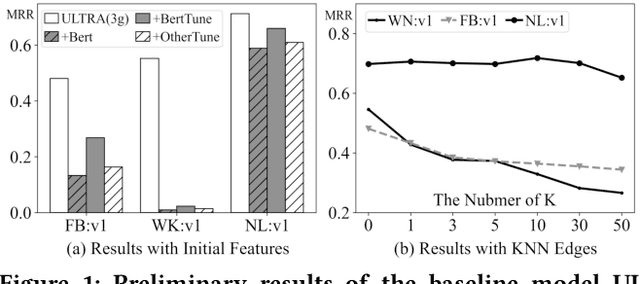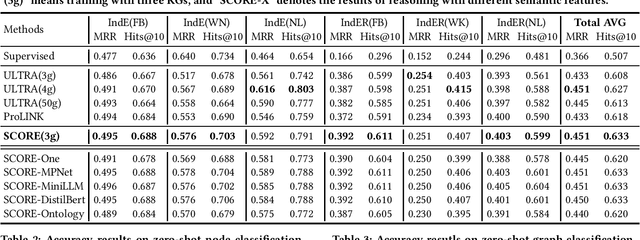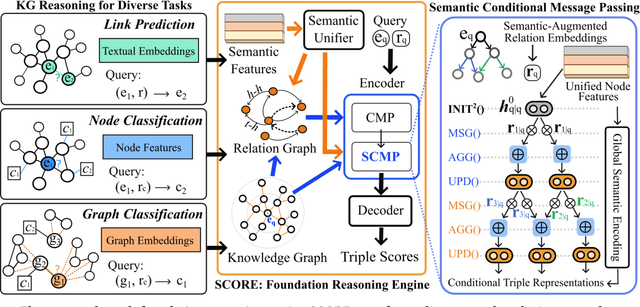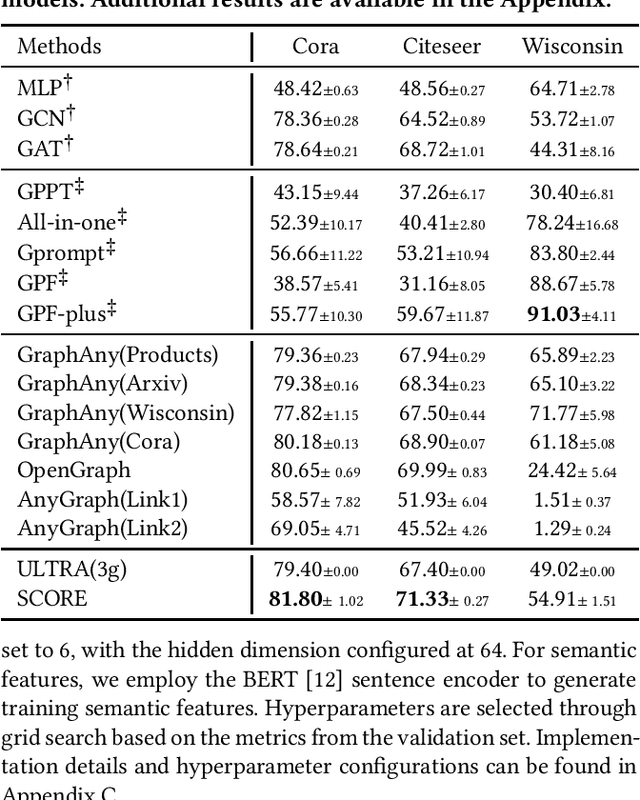Towards Graph Foundation Models: The Perspective of Zero-shot Reasoning on Knowledge Graphs
Paper and Code
Oct 16, 2024



Inspired by the success of artificial general intelligence, there is a trend towards developing Graph Foundation Models that excel in generalization across various graph tasks and domains. However, current models often require extensive training or fine-tuning to capture structural and semantic insights on new graphs, which limits their versatility. In this work, we explore graph foundation models from the perspective of zero-shot reasoning on Knowledge Graphs (KGs). Our focus is on utilizing KGs as a unified topological structure to tackle diverse tasks, while addressing semantic isolation challenges in KG reasoning to effectively integrate diverse semantic and structural features. This brings us new methodological insights into KG reasoning, as well as high generalizability towards foundation models in practice. Methodologically, we introduce SCORE, a unified graph reasoning framework that effectively generalizes diverse graph tasks using zero-shot learning. At the core of SCORE is semantic conditional message passing, a technique designed to capture both structural and semantic invariances in graphs, with theoretical backing for its expressive power. Practically, we evaluate the zero-shot reasoning capability of SCORE using 38 diverse graph datasets, covering node-level, link-level, and graph-level tasks across multiple domains. Our experiments reveal a substantial performance improvement over prior foundation models and supervised baselines, highlighting the efficacy and adaptability of our approach.
 Add to Chrome
Add to Chrome Add to Firefox
Add to Firefox Add to Edge
Add to Edge